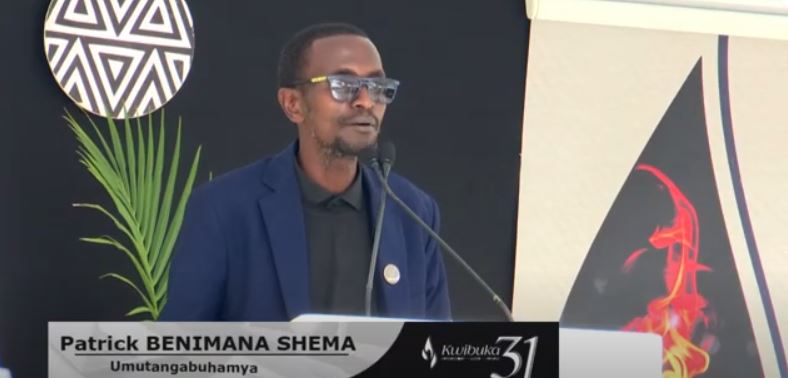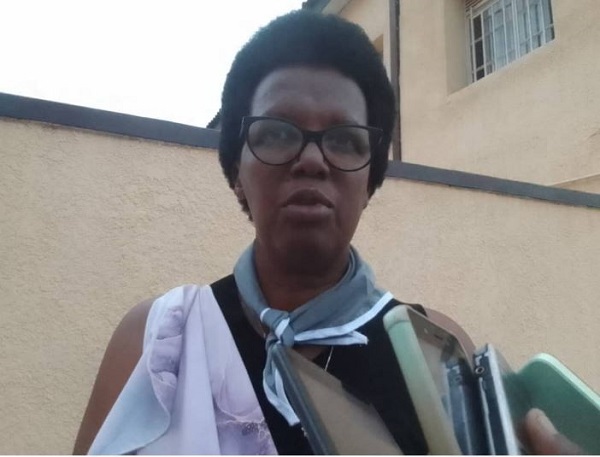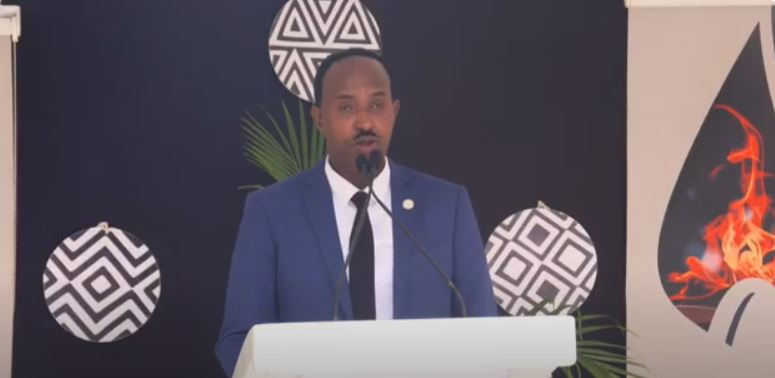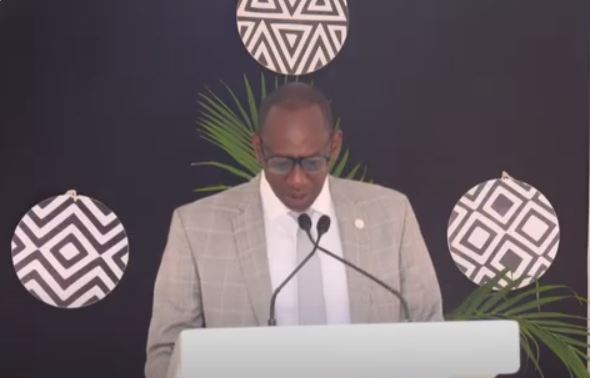By; Alphonse Uhagaze
As Rwanda continues the 100-day national commemoration of the 1994 Genocide against the Tutsi, Rwezamenyo Sector held a solemn memorial at the Josephite Brotherhood Center in Nyamirambo. The ceremony marked the 31st annual remembrance of victims who were killed at the Saint Joseph Center in Nyarugenge District.
The event brought together survivors, local leaders, and community members to pay tribute to those who lost their lives and to reflect on the path Rwanda has taken toward recovery and unity.
Patrick Benimana Shema, a genocide survivor and eyewitness, gave a harrowing account of the events leading up to and during the massacre. “The persecution of the Tutsi began in 1993 while I was studying at APACOPE,” Shema recalled. “After the assassination of Félicien Gatabazi, and shortly after, Bucyana, president of the CDR, was also killed, the violence erupted in Gikondo and spread to Biryogo. Families were targeted, homes were burned, and many fled to Saint Joseph and Saint André seeking safety.”

However, the sense of safety was short-lived. “After the plane crash that killed President Habyarimana on April 6, the killings intensified. The Interahamwe and ex-FAR soldiers massacred people at Saint Joseph, filling the courtyard with bodies. After three days, trucks came to collect the dead—five trucks made ten trips.”
Shema named some of the victims he remembered, including Dr. Boyi and Munyambaraga and his son. He expressed gratitude to the Rwandan Patriotic Army for intervening and restoring peace. “Thanks to them, life is going well today,” he said.
Speaking at the ceremony, Ms. Nirere Marie Rose, Executive Secretary of Rwezamenyo Sector, noted the efforts being made to support survivors in the area. “Although we lost many, we have survivors who need support. We focus on building homes rather than just providing food aid. So far, four houses have been constructed in partnership with Nyarugenge District, Ibuka, and other partners,” she said. She also highlighted the Saint Joseph Center’s role in vocational training for children.

Safari Hamudu, head of Ibuka Nyarugenge, expressed solidarity with survivors and families of victims. “We are here to pay our respects with flowers and remembrance,” he said. “Many thought Saint Joseph was a safe haven, but most were killed here. Among them were members of the Josephite Tutsi congregation.”

He strongly condemned those responsible, including the Interahamwe, ex-FAR soldiers, and extremist leaders such as Colonel Tharcisse Renzaho and Laurent Munyakazi. He also mentioned historical figures linked to the ideology of division, such as Bishop André Perraudin, founder of the PARMEHUTU party.
Kigali City Deputy Mayor, Ms. Urujeni Martine, underscored the importance of remembrance. “Today we pause to honor our loved ones. We bring them flowers as a sign that we have not forgotten, and that we stand with them,” she said.
The guest of honor, Hon. Kalisa Jean Sauveur, spoke about the broader impact of the genocide, which claimed over a million lives in 100 days. “It left deep scars—orphans, widows, people with disabilities, and a broken nation. But after the genocide, Rwanda set out to rebuild based on truth, resilience, and equity,” he said.

He acknowledged the progress made over the past 31 years, while urging continued vigilance. “We must confront genocide denial and the spread of hate on social media. Let us promote unity, the NDUMUNYARWANDA identity, and protect our nation.”
The Kwibuka 31 ceremony in Rwezamenyo served not only as a moment of mourning but also as a call to uphold the values of remembrance, unity, and commitment to never again allow genocide on Rwandan soil.











